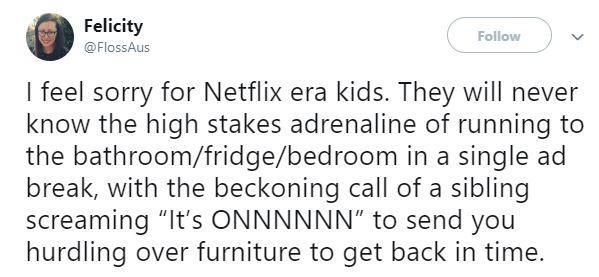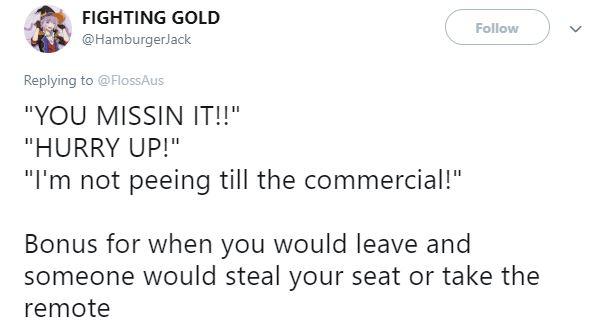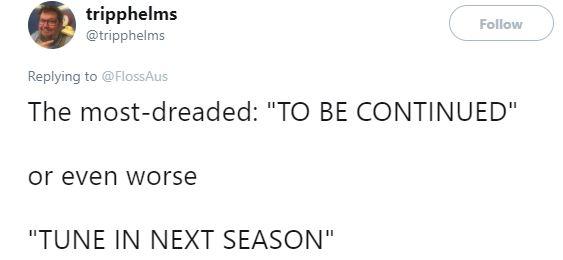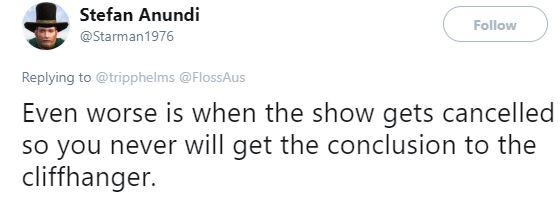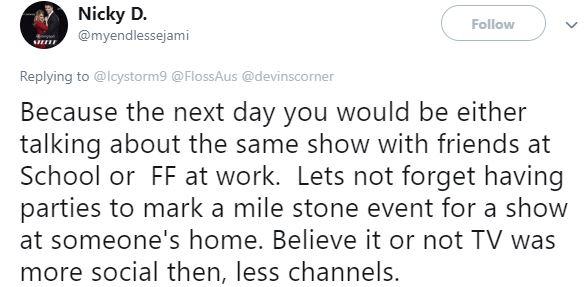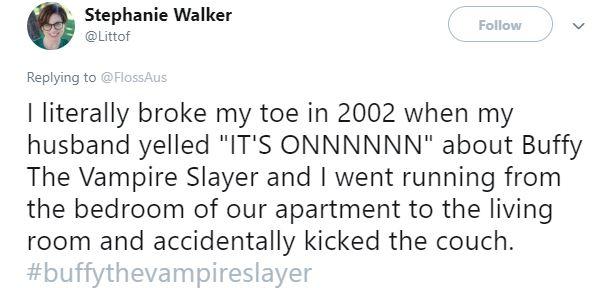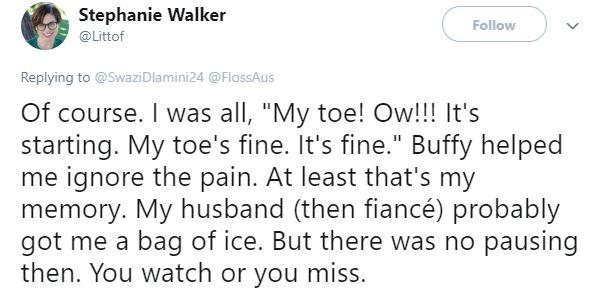Kids Who Grew up With Netflix Will Never Know These TV Pleasures/Struggles
Updated Nov. 18 2019, 2:25 p.m. ET
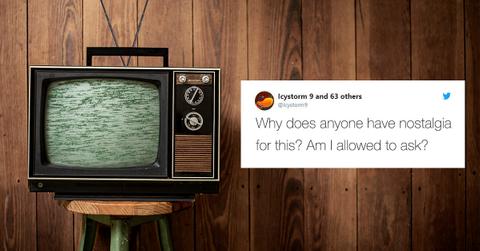
Nostalgia makes everything seem better. I mean have you ever heard people who grew up during the Great Depression talk about how they were literally fighting for their lives and happy to have beet soup for dinner?
I don't know about you, but that doesn't really sound like a good time to me, yet you'd see these old folks sitting down waxing poetically about how they kind of miss those days, like it was something great.
Now, living during the '90s was a heck of a lot better than living through the Great Depression, but I'm not exactly on board with all the things my fellow '90s kids are getting nostalgic about, and that includes '90s TV.
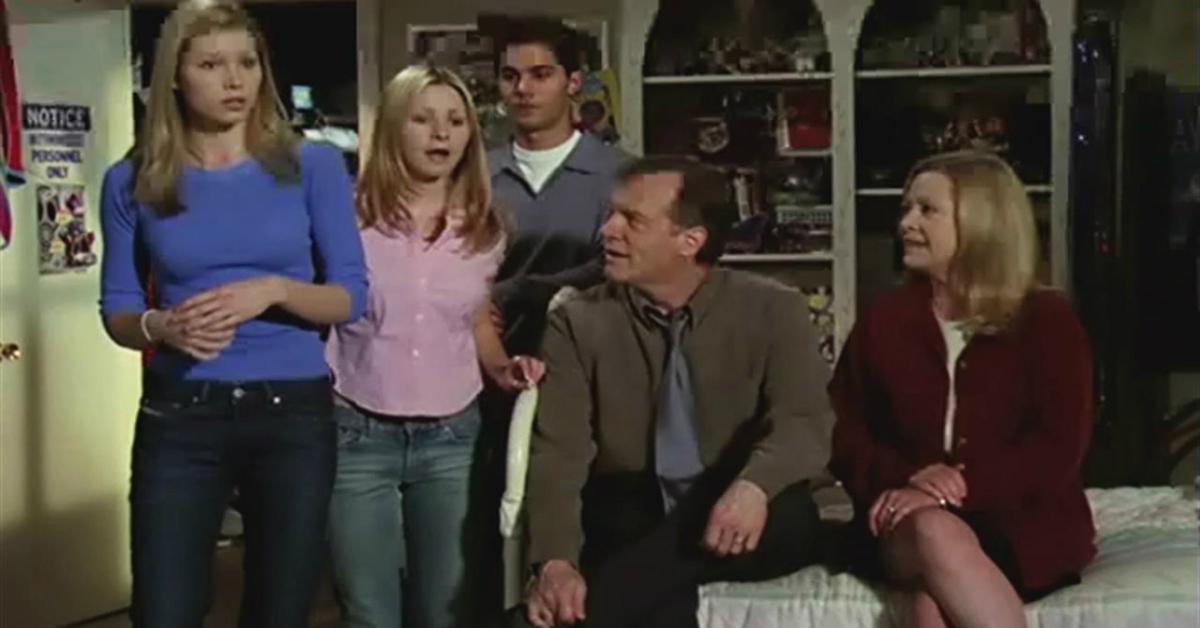
I'm not talking about the TV shows specifically or the quality of the shows, although there are some that unwatchable today. Like I don't care what you say or how much it meant to you as a child, but Full House and 7th Heaven absolutely stink. Sorry, they just do.
What I'm more concerned with, as are a bunch of people my age and older on Twitter, is how we watched these shows. Without Netflix and on-demand streaming/viewing services, that meant you had to follow a regularly scheduled programming format to see your favorite TV shows.
And it's got a lot of old heads feeling "sorry" for the current generation who'll never get to experience the frustrating joys of being at the mercy of commercial breaks and monolithic networks telling you when and how to watch the content they've produced for you.
If you wanted to get up to go to the bathroom, or get something to eat, or answer the door, or, I don't know, do anything having to do with your life in the middle of a show, there was no pause button. You missed whatever you missed and there was no going back to it. Unless you could catch a re-run or you were one of those people who troubled themselves to tape their favorite shows.
You also had to watch TV programs in a serial fashion. There was really no convenient way to "binge watch". Netflix may offer the entire season of their originals right off the bat so you could see them all as fast as you can watch them.
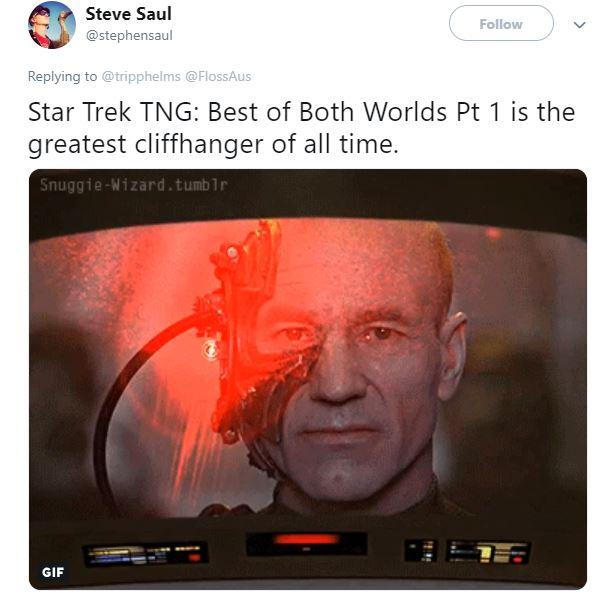
But back in the '90s there would be tons of cliffhanger episodes. Often they'd come at the end of the season, leaving you pining for months or a year until the newest season rolled around.
Some people asked the intelligent and meaningful questions surrounding this weird dogpile of nostalgia everyone started jumping into. If all of these things sound horrible to you that's because you are a sane and completely normal person who is appreciative of the conveniences and strides modern providers have made for us viewers.
There were people who argued that the restrictions of the old network formats created a more social viewing experience around shows. But I would argue back that huge trending shows like Breaking Bad or Game of Thrones still have the same watercooler buzz.
Granted, these shows follow more traditional networking cues, like releasing a new episode every week, rather than the "everything at once" Netflix model. So old-format advocates have a point there.
Nevertheless, the excitement surrounding TV shows "back in the day," knowing you only have one chance to catch the program or you'd be relegated to secondhand recaps or rerunsville, had some very real consequences on people's lives.
I never got into Buffy personally, but if Total Recall was on TV, you best believe I'd be storming into the room in order to catch a glimpse of Kuato grunting, "start the reactors!" TV was more magical back then, but I would say that has less to do with the format and more with how old we were.
For the most of us, when we were children, everything seemed more magical, because we were young and full of hope and enthusiasm. Days seemed like weeks and weeks years because we were so excited all the time, so of course missing 15 seconds of our favorite show was a big deal.
Great, now I'm depressed. I'll just binge watch an entire season of It's Always Sunny in Philadelphia to forget about it, I guess.
